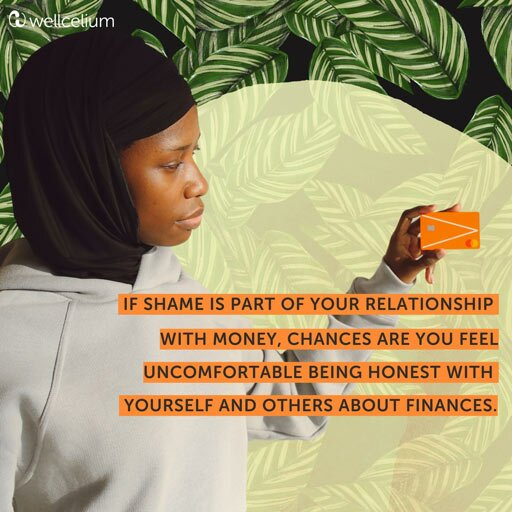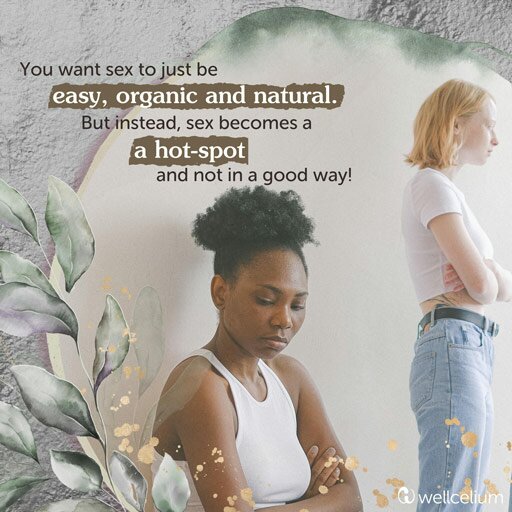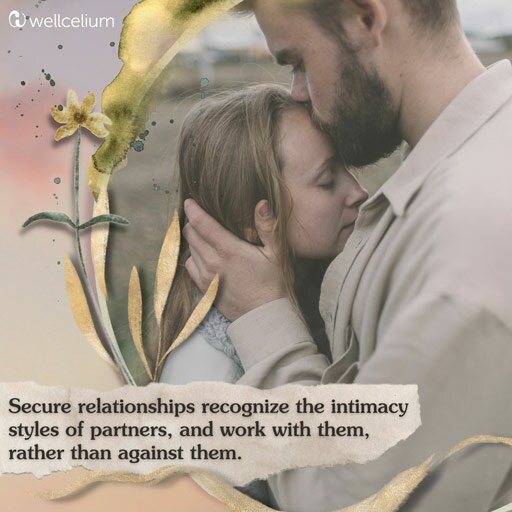Do you wish you wanted to have more sex, but you just really don’t?
Is the impact of you saying ‘no’ wreaking havoc on your relationship? Maybe you have had moments in sex where you find yourself reliving past negative experiences. If this resonates with you, you are not alone. Many people experience sexual aversion, which can include a general lack of sexual desire, but it often includes an experience of anxiety and sometimes panic.
Usually when someone is experiencing sexual aversion, they aren’t able to show interest in being sexually intimate with a partner.
They also have anxiety about the idea of physical intimacy, and sometimes feelings of disgust around sex are even present.
To take a deeper look at this experience, let’s explore something called the Dual Control Model, which was developed by Jansson and Bancroft from the Kinsey Institute. Emily Nagoski’s excellent book, Come as You Are, (see resource link below) provides a detailed and digestible overview of this concept, and much, much more. She’s a-may-zing.
The Dual Control Model presents that sexual arousal isn’t simply an on/off switch.
Emily Nagosky describes it more as an accelerator and a brake.
Things that turn you on hit the accelerator or the gas, and things that turn you off hit the brakes. And the same as with a car, if something is holding the brake, it doesn’t matter how hard you hit the gas…the brake wins. So we can think of the body in the same way. If something is causing the mind/body to hold down the brake hard, then stimulation that would otherwise be experienced as positive or pleasurable can be perceived by the brain as a threat, and the body/mind hit the brakes.
So why do bodies ‘hit the brake’?

There are many reasons why the body can get in the habit of hitting the brakes on sex and pleasure.
Formative messages from our families, culture, religion, or other places that sex is shameful, dirty, and dangerous can result in pre-installed insecurities, fears, and misinformation which requires a lot of un-learning as adults.
Feelings of pressure and expectation around sex, painful intercourse, having sex you don’t want to have, and sexual trauma can all contribute to sexual aversion. When the body has made some negative neurological associations, the initial reflex to avoid further negativity can be to ‘hit the brakes’ in an effort to stay safe.
Regardless of what has caused sexual aversion, there are learnable skills that can help to understand this experience, gain a self-compassionate lens, and learn easier ways to talk about what’s going on for you.
If you want to gently explore what’s up with not wanting sex, we have a free on-demand webinar called “But I WANT to want to…sorta.”
This webinar offers a somatic perspective, a kindness reframe, practical information on discovering if you are experiencing sexual aversion, and much more. Click here to watch this free and confidential webinar.
Questions to ask yourself:
Is something ‘hitting the brakes’ on sex in my body or mind?
Do I know what this may be connected to for me?
Is there someone I trust that I could talk to about this experience?
Questions to ask yourself about exploring sex:
Are there boundaries and ground rules I can set to help me feel more safe and in control of the situation?
Are there certain types of sexual contact that feel safe to explore?
Can I share these ideas and boundaries with a partner and feel received and respected?
Suggested Practice
Body Scan Meditation from Greater Good in Action
Is thinking about all this causing tension in your body or mind? Click the link above to listen to a 3-minute guided body scan meditation and feel your body relax as you try this practice. Regular mindfulness practice is one of the skills that can help to heal sexual aversion.
Recommended Resources
- Book: Come as You Are by Emily Nagoski, Ph.D.
- Check out the companion workbook for additional support.
- And don’t miss Emily Nagoski’s incredible TED talk, where she breaks it all down with humour and grace.
The Dual Control Model of Sexual Response, by the Kinsey Institute.

free webinar!
But I WANT to want to… sorta: Dealing with Sexual Aversion
—
Watch the replay of this webinar on-demand on our YouTube channel.


